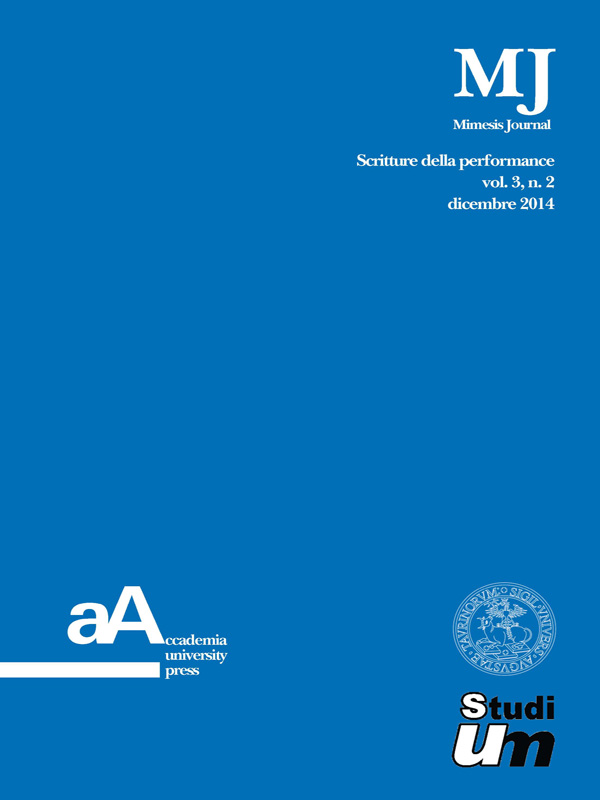Conceptual Models for Intangible Art
A formal modeling proposal
DOI:
https://doi.org/10.4000/mimesis.690Abstract
Formal ontologies have been fruitfully employed to describe and document cultural heritage with the twofold goals of providing explicit and shared conceptual models of cultural heritage and of making documentation directly available to men and machines on the Web in a semantic, self-explanatory format. In this paper, we discuss the suitability of formal ontologies to describe the traits that characterize the case studies of the Invisibilia Project, ranging from the impermanent, ‘variable’ nature of installations and performances to the tight integration with the urban context typical of public art. In particular, we consider the suitability of the current standards for Invisibilia and we illustrate some extensions that are required to grasp the peculiar traits of the project corpus.


